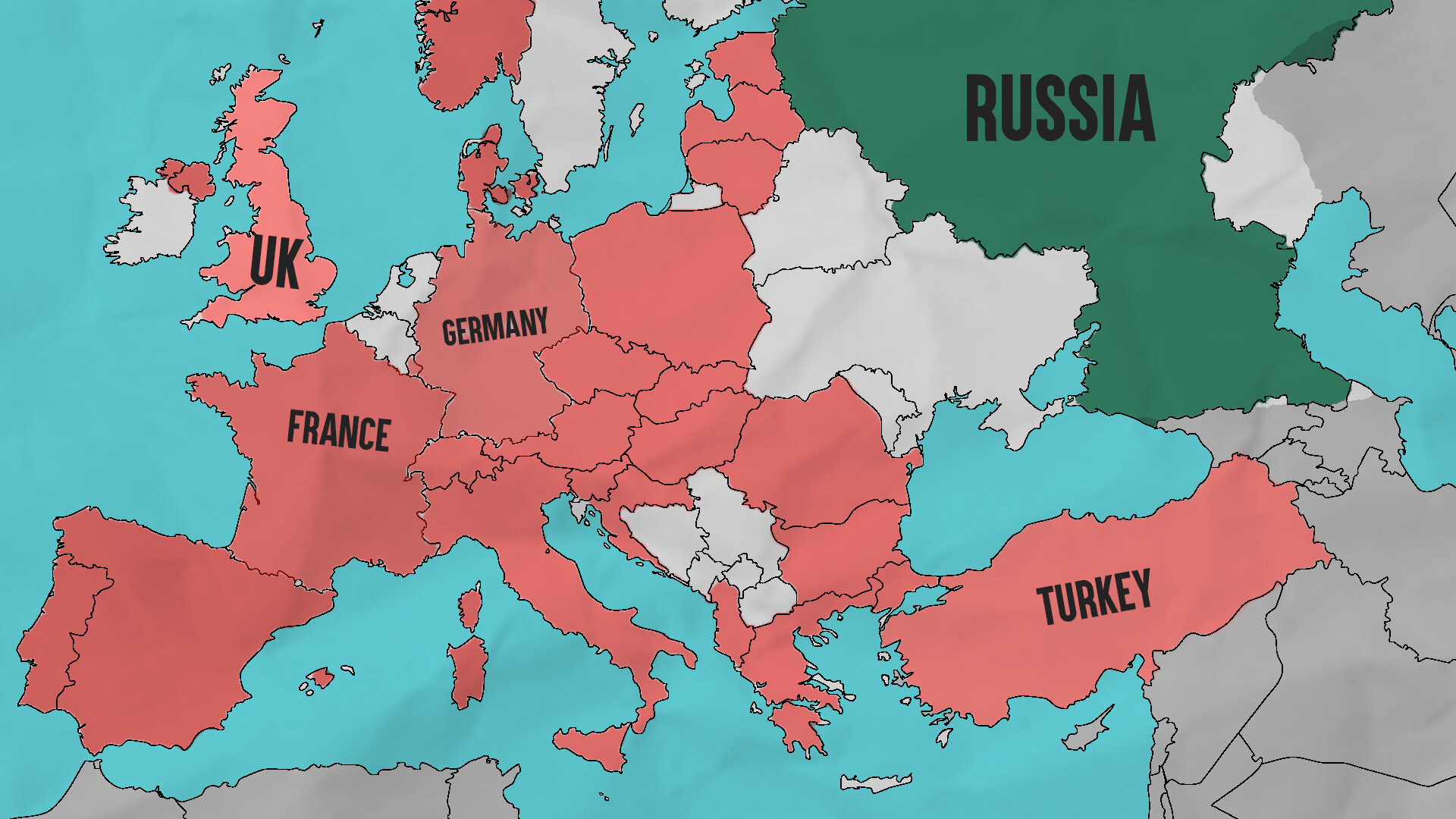Understanding Turkey
Military Might + Geographic Relevance
Turkey has a very strong military. The Turkish Armed Forces is the second largest standing military force in NATO, after the US.
NATO was formed in 1949 and was initially aimed at mitigating the spread of Soviet influence into Europe.
Geographically, Turkey sits as the Easternmost member of the 30 nation alliance and is one of only a few nations to share a maritime border with modern-day Russia.
The other most powerful militaries in NATO are (in no particular order) Germany, France, the United Kingdom, and Italy. They are also democracies.
Turkey is nominally a democracy but in reality a dictatorship. Turkey's President, Recep Tayyip Erdogan, came to power in 2003 after serving as mayor of Istanbul.
He’s now spent over 17 years leading from the capital, Ankara. He founded his political party, the Justice and Development Party (AKP), in 2001, and instituted a constitutional referendum that allowed him to transcend term limits in 2017.
Erdogan has jailed political dissidents within Turkey who claim he is an authoritarian dictator. Listen to NBA star Enes Kanter talk about how he cannot communicate with his family members who still reside in Turkey.
This consolidation of power and move towards Turkey becoming a single-party state. Unlike the Chinese Communist Party, which is explicitly atheist and persecutes religious groups, the Turkish leadership is centered around an Islamic identity.
Some speculate that Erdogan aspires to become the Caliph, or in other words, the ruler of the Muslim world.
This boldness is expressed through the flouting of arms embargoes, failure to condemn radical Islamic terrorist attacks in France, and open support (through arms and mercenaries) to the Azerbaijani side during the 2020 Nagorno-Karabakh Conflict.
Nationalism and the Ottoman Empire
Leaders have always tapped into their nation’s historic identity as a means to rally support, stoke animosity, and guide foreign affairs.
In the United States, colonists cried ‘Manifest Destiny’ as they conquered the continent. More recently, "Make America Great Again" was used to stoke a nationalist impulse.
China’s long history as the ‘Middle Kingdom’ at the center of the world is used to assert more hawkish policies in the present.
Turkey has a similar heritage, with roots that go back to the Ottoman Empire and as far back as Homer’s Troy.
Now, a power vacuum is opening the door for Turkey to assert itself in the Middle East, the Caucasus, and Eastern Mediterranean.
In the Eastern Mediterranean, that means contesting waterways and islands that have been legally defined as belonging to Greece. Given these nations' history of conflict, don’t expect this to dissipate any time soon.
In the Caucasus, it means continuing to arm (and perhaps eventually annex) Azerbaijan.
Further southwest, Turkey looks into the Middle East and sees no army that can match the Turks head-to-head.
The Saudis don’t have enough loyal Sunnis. The sanction-starved, tankless Iranians would not be able to resist. Syria is in enough disarray that some parties might welcome an occupation for the potential stability.
The primary constraint Turkey must deal with is where to focus its considerable power.
Once they do, the big question will be, who will stop them?
Neither Saudi Arabia, Israel, nor Iran will ever jump to the other’s aid.
Turkey’s immediate bordering countries Syria, Iraq, Greece, Georgia, Armenia, Azerbaijan, and Bulgaria offer no major challenge.
The US is increasingly disinterested in foreign involvement and continues to draw down troops from Iraq and Afghanistan.
Russia is facing a demographic cliff similar to China and does not want to engage with such a fearsome opponent directly (they mostly avoided supporting the Armenians against the Turkey-supported Azerbaijanis).
France, Germany, and the United Kingdom are distant and distracted enough to overlook some behavior.
Takeaway
Turkey is powerful and will become increasingly influential in the Eastern Mediterranean over the next decade.
I can’t project the implications of that, but it’s worth paying attention in foreign affairs.
While the Western World focuses on China, Brexit, and ongoing flare ups in the Middle East, a giant lies in wait in Turkey.
Further Reading & Listening
Erdoğan’s Turkey & the Revival of the Ottoman Empire
Disunited Nations by Peter Zeihan


